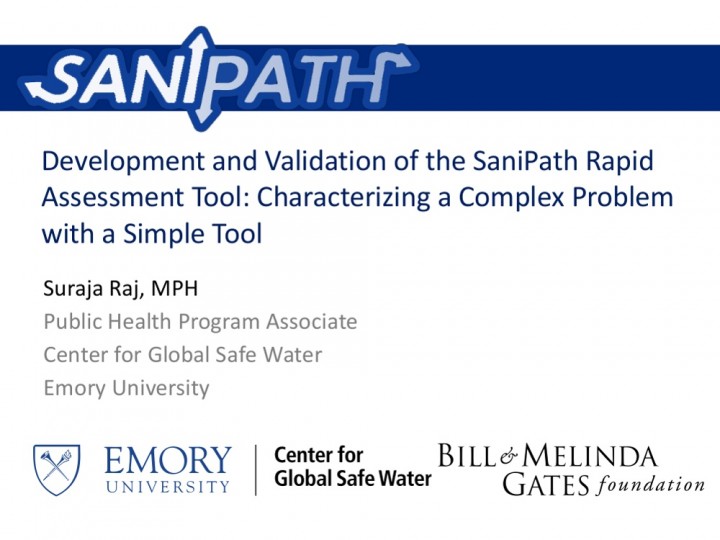This library entry contains background documents and results for a grant that Christine L. Moe is leading with support by Suraja Raj, and which is funded by the Bill and Melinda Gates Foundation.
Further details are available on the SuSanA discussion forum, see link further down below.
Short description of the project:
Rapid urbanization has led to a growing sanitation crisis in urban and peri-urban areas of low-income countries. Currently, over half of the global population reside in urban areas, with cities in Asia and Africa projected to experience the greatest increase in population. Rapid population growth in developing countries has outpaced existing infrastructure, including water and sanitation systems, leading increasing numbers of urban dwellers, especially those in informal settlements, to live in very polluted environments. Despite the considerable sanitation needs of urban and peri-urban communities, there are little data to inform strategies to mitigate risks of fecal exposure in developing countries. Consequently there is a need for site-specific evidence to help make decisions about sanitation investments.
Phase 1 on the study involved in-depth data collection on behavior and environmental contamination along multiple pathways of exposure in Accra, Ghana. Examples of pathways of exposure to fecal contamination include drinking water, recreational water, waste-water irrigated produce, surfaces in public latrines, drain water, etc. Based on lessons from Accra, we have been developing the SaniPath Rapid Assessment Tool to assess key pathways of exposure in urban, low-income settings. The tool guides users in collecting much needed data on exposure to fecal contamination in low income, urban neighborhoods, and synthesizes these data for community, government, and service providers’ decision-making. The pathways are characterized by taking into consideration the frequency of exposure to a particular pathway along with the dose (the amount of E.coli ingested per ingestion event). The tool, which consists of training material, protocols, as well as data entry/analysis software, is publicly available on our website or on a USB flash drive and is intended for non-governmental organizations, funders, and government institutions.
Project team:
Many people have been involved in the SaniPath study and in the development of this tool. Below is a list of current team members, but there are many past team members and collaborators who have been instrumental to this work.
Faculty:
Christine L. Moe, PhD (PI)
Peter Teunis, PhD (co-PI)
Amy Kirby, PhD (Laboratory Manager)
Research Project Coordinators:
Habib Yakubu
Katharine Robb
Suraja Raj
Data Analyst:
Yuke Wang
+++++++++++
Documents available for download below:
1 - Presentation on Development and Validation of the SaniPath Rapid Assessment Tool, FSM3 Conference in Hanoi (January 2015)
Bibliographic information
Raj, S. et al. (2015).
Assessment and characterization of fecal exposure pathways in urban low-income settings (SaniPath) Various documents on results from research grant Emory University
Filter / Tags
Fundamental research and engineeringEnglish
External links
Further information on discussion forum
Downloads
1 - Presentation on Development and Validation of the SaniPath Rapid Assessment Tool, FSM3 Conference in Hanoi (January 2015)
Download
Type: application/pdf
Size: 1.74 MB

Published in: 2015
Pages: 0
Publisher:
Emory University
Author(s):
Raj, S. et al.
Uploaded by:

